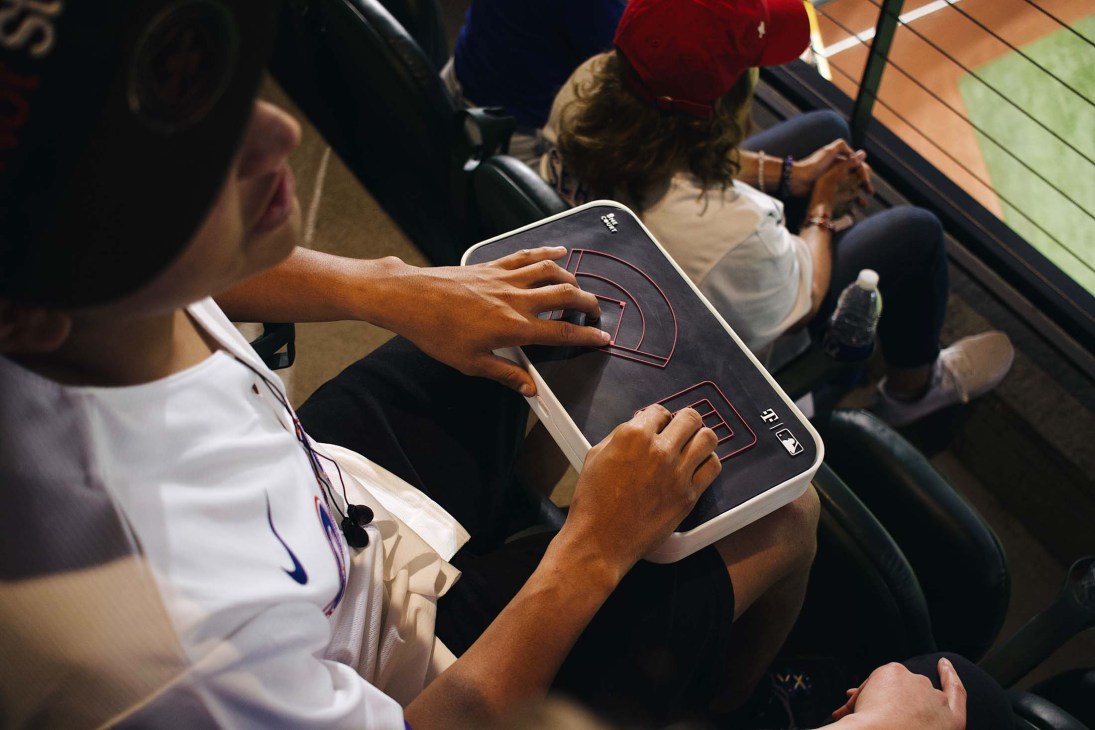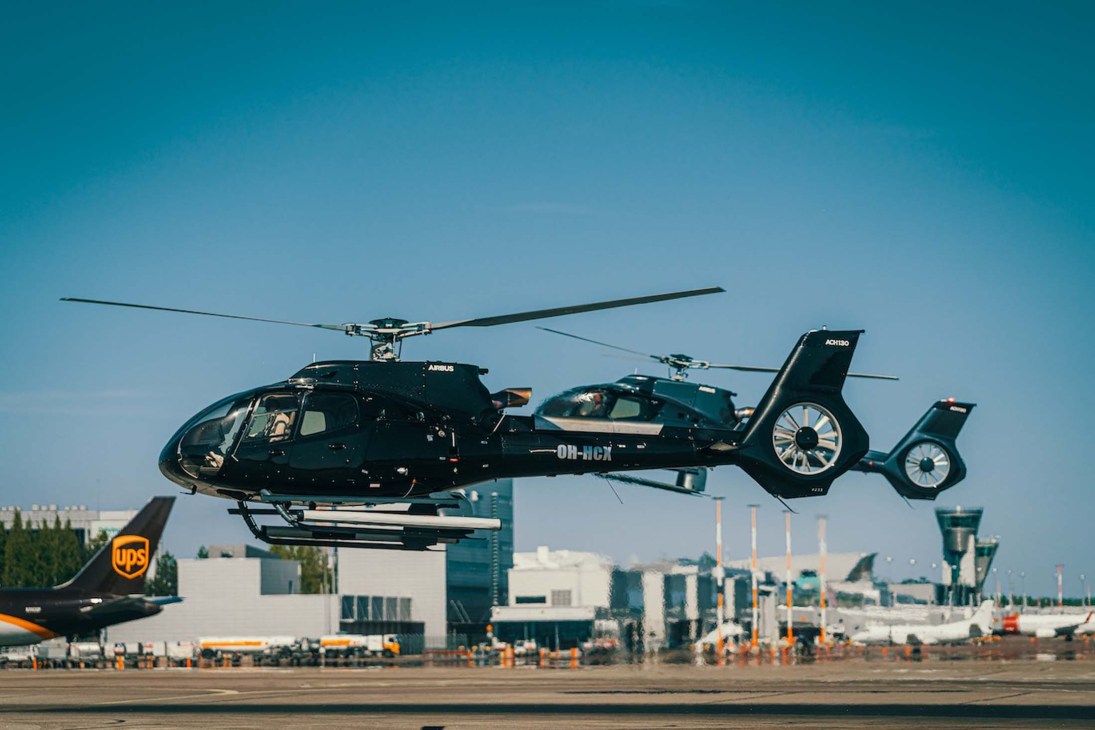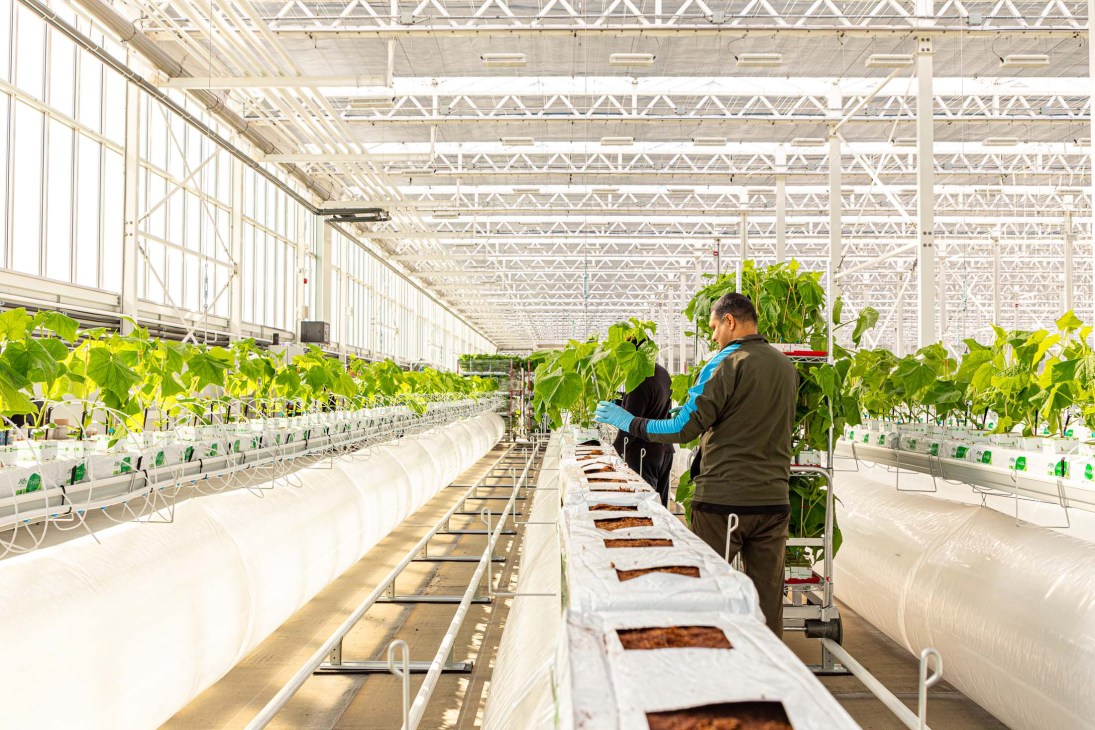Business agenda: Sustainable air travel with Helsinki Citycopter and Canadian companies making the most of Trump’s tariffs
Technology: USA
Good vibrations
This NBA season, blind and low-vision basketball fans have been able to follow the action from their arena seats using a handheld device that describes the game through vibrations. Seattle-based start-up OneCourt was founded in 2021 and its haptic device debuted with the Portland Trail Blazers in January. The technology uses wi-fi and 5G to transmit data from arena sensors and cameras; coupled with a live broadcast, fans who can’t see the game can follow the action as the device signals, for example, where a three-point shot was taken.

The early-stage start-up has raised $475,000 (€420,000) from angel investors, including Microsoft’s ceo, Satya Nadella, and five NBA teams have signed up for the service. OneCourt has also engineered versions for baseball and football, which could be used during the Fifa Club World Cup that kicks off on 14 June. Co-founder Jerred Mace and his team currently make the OneCourt device in-house but he hopes to produce it at scale for an underserved market of sports fans who will be able to use it at home too. “We want to have a product that doesn’t just live in the stadium,” he says.
Transport: Finland
Out for a spin
Private helicopter transfers tend to be functional affairs, with cramped cabins and the lingering scent of jet fuel. Helsinki Citycopter, a Finnish firm founded in 2020, does things differently: the five helicopters in its fleet, which includes two Airbus ACH130s and an H125, have spacious interiors with leather seats, noise-cancelling headsets and efficient climate control. Powered by sustainable aviation fuel and modern low-emission engines, the aircraft also leave a smaller environmental footprint than many of their competitors. “There’s a unique advantage to helicopter travel,” says co-founder Joonas Nurmi, who spent 15 years with Finnair. “You get perspectives that you don’t see from a plane or car and you can land almost anywhere.”

Now the market leader in northern Europe, the company has steadily expanded, adding a Cessna Citation CJ4 private jet to its portfolio and launching a flight academy for helicopter and fixed-wing pilots. In addition to transfers, the firm enables travel to remote destinations, including Lapland, the Finnish archipelago and the Lofoten Islands. “Our product is nature,” says Nurmi. “And we fly where no one else does.”
helsinkicitycopter.com
Agriculture: Canada
Growth opportunity
When Donald Trump launched his first tariff broadsides at Canada’s economy in February, Canadian shopping habits shifted abruptly – away from American-made goods and towards more homegrown brands. That presents an opportunity for independent Canadian food companies. Among them is Lufa Farms, the innovative urban agriculture firm and marketplace for Québec-grown produce, which was co-founded in Montréal in 2009 by Lebanese engineer and entrepreneur Mohamed Hage and is currently expanding its reach across the country.

Inspired by the rooftop fruit-and-vegetable gardens that are a fixture of urban life in Hage’s home country, Lufa Farms operates as a network of rooftop hydroponic greenhouses on the flat roofs of industrial buildings, warehouses and big-box retail complexes in Montréal and across the broader region. The vegetables cultivated inside, which are watered by a system of rainwater- and ice-melt collection from the greenhouse roofs, are then picked and assorted into weekly grocery baskets.
Lufa Farms’ urban greenhouses not only reduce the distance between farm and table but have also activated parts of the existing urban fabric that have too long been dormant. Hage now operates an indoor farm and five greenhouses across the region, which serve about 35,000 customers every week, and has expanded deliveries to Ottawa. Lufa Farms’ success sends a strong signal that customers have a healthy appetite for this kind of urban agriculture – and that there’s ample room to grow.
lufa.com


